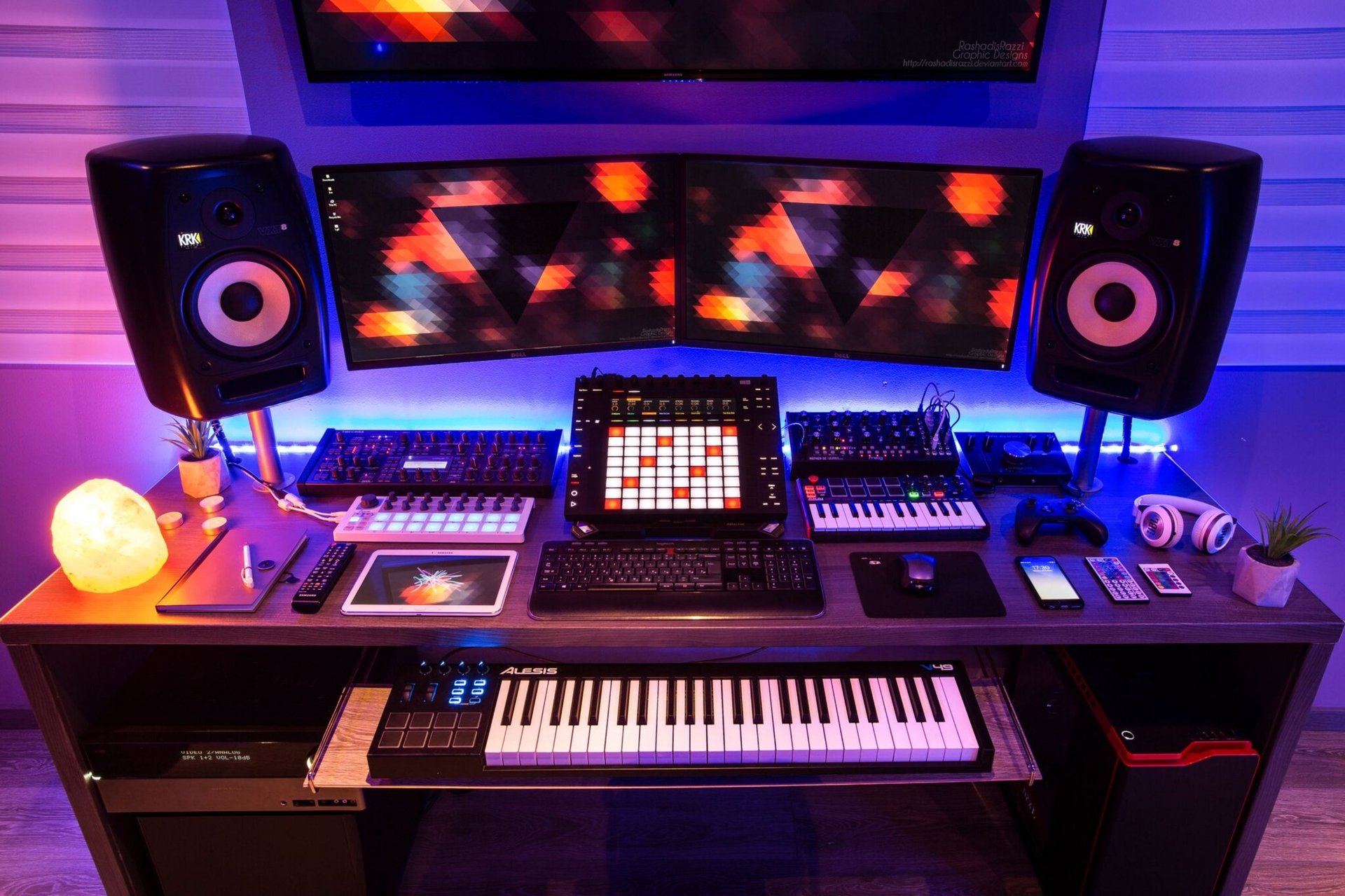
How Copyrights are Split
All musicians should know that every Recorded Track are broken down into two main copyrights:
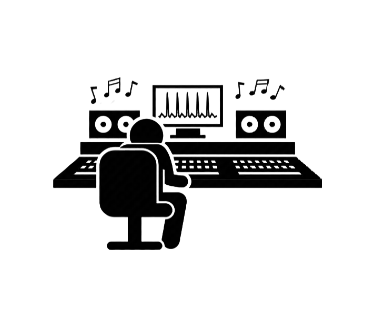

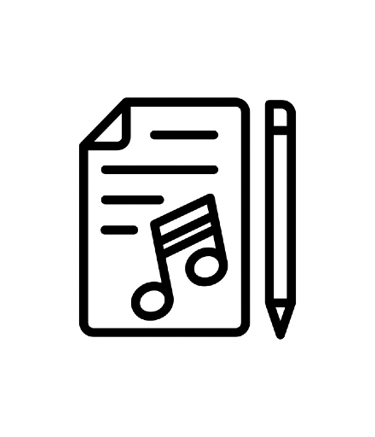

Songwriters
Recording Artists
50%
50%
COPYRIGHTS
MASTER RIGHTS
Songwriters - Writing the lyrics and music
Recording Artist Producer - Recording the lyrics and music together into Sound Recording
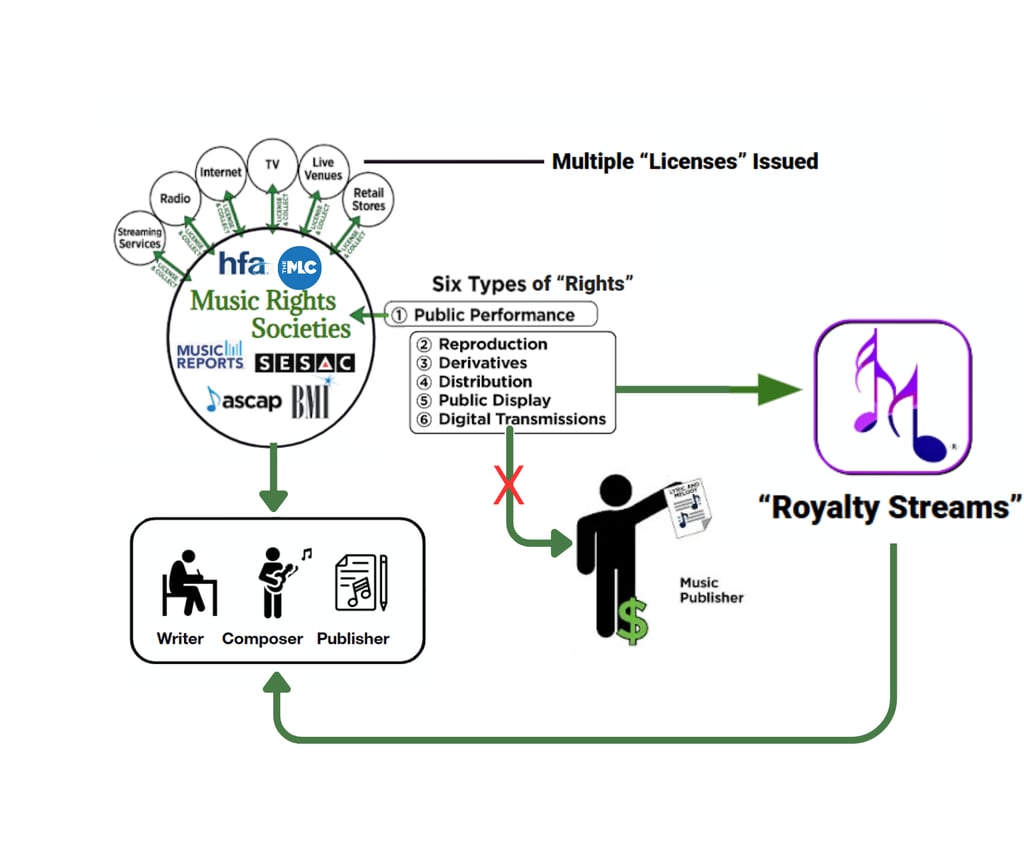

Songwriter - Song Copyrights
For a Songwriters Copyrights, 6 types of rights are commonly generated from a single written Song.
Note: When you create a Song by default, you are both the writer and publisher for all 6 Copyrights. This means you can collect as a self administered publisher, but ONLY for your own rights. You wont be able to collect others Publishing Rights unless you have license and are affiliated as a Publisher.

A Songwriter can ONLY collect just for half of the Performing Rights to their Song. However it is Industry Standards the rest of the Songs rights are collected by a Publisher.
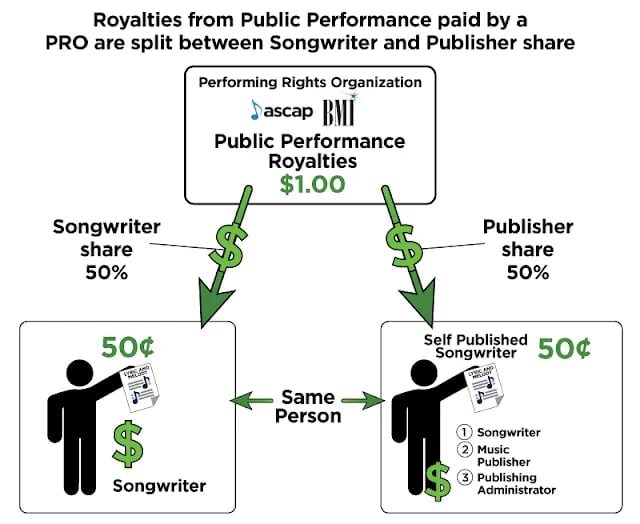

Spotify's Publishing Distribution
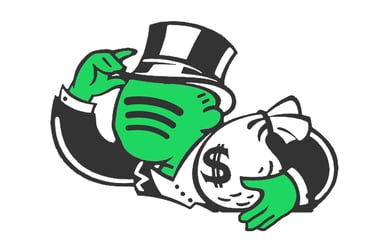

Recording Artists - Master Rights
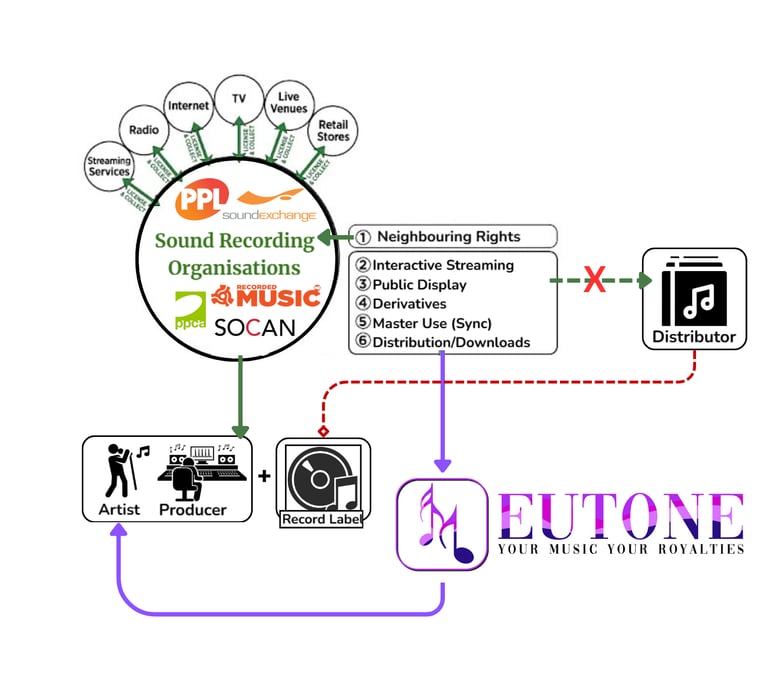

Recording Artists owns the Master Rights are for the Sound Recording. The word Masters derives from the term Master Recording. It is the final produced audio file or is the original recording to what is known in the industry as "Owning Your Masters" or to be an owner of the Master Copyright to a Sound Recording.
For a Recording Artists owning the Masters could depend on several things, like if you are the Executive Producer, studio time is financed by your Label or if the Producer is conducting the entire recording session.

